Faces of October 7
A gallery
Shani Louk
Shani was Israeli-German, an artist who loved music, dance, and world travel. The video of her kidnapping from the Supernova music festival would quickly go viral on social media, as terrorists paraded her prone body through the streets of Gaza in the back of a truck. For weeks, her family held out hope that she might be alive, with misinformation circulating that she was in a Gaza hospital. But her death was officially confirmed on October 30 when soldiers located a piece of her skull. Hamas still holds the rest of her.
“She was peace-loving,” her family says, “and she had so much ahead of her. But she did live a good life, she was happy, and that’s the way we want to remember her.”
Shani was 22.
Awad Darawshe
Awad came from an Arab family who chose to stay in Israel and become full citizens after the 1948 war. He was the baby of his household, remembered as “a dreamer” who wanted to be a doctor and a chef, never living far from his parents.
Awad was at the Supernova festival on the morning of October 7, but he wasn’t having fun. Not because he didn’t want to be there, but because it wasn’t part of his job description as a paramedic on the edge of the party.
Frightened and bleeding, the young Israelis who came flying to his station thought they had made it, that they might be safe there. But they thought wrong. Soon, the leader order all medics to evacuate. Awad refused, hoping perhaps he could play some mediating role. “I speak Arabic,” he said, “I think I can manage.” He was shot in the act of caring for one of the injured. The terrorists then stole his ambulance and drove it into Gaza.
“We are very proud of his actions,” his father said. “This is what we would expect from him and what we expect from everyone in our family — to be human, to stay human and to die human.”
Awad was 23.
Aner Shapira
Aner’s great-grandfather, Haim Moshe, was a signatory of Israel’s Declaration of Independence. In 1957, he was seriously injured when a domestic terrorist threw a grenade into the Knesset plenum hall. He couldn’t have known that decades later, under far more terrible circumstances, history would rhyme.
Staff Sgt. Aner Elyakim Shapira, of the Nahal Brigade, was something of an anarchist himself, but he knew Israel needed an army, and he was proud to join it. When he wasn’t being an elite soldier, he ran, read voraciously, and wrote songs and poetry.
On the morning of October 7, he was unarmed and off-duty at the Supernova festival. He fled with a group of other young people, mostly strangers to him, and they all hid in a public bomb shelter with no door.
“Hi everyone,” he introduced himself as they waited, “I am Aner Shapira, I serve in the Orev unit of the Nahal brigade. My friends from the army are coming soon. I am going to take care of things here, so don’t worry.” “Thank you, Aner,” someone said, “we feel calmer now.”
As the terrorists approached, he knew their best tactic would be to throw grenades into the tiny space. “I’ll catch the grenades and throw them back,” he promised, “and if I miss any, you throw them back.”
Footage of the scene from outside the shelter shows the terrorists approaching and throwing in the first grenade. Then it comes back. Then they throw in another, and that comes back too. Then they throw in another, and another.
Seven grenades were thrown in, and seven times, Aner Shapira threw them back. The eighth one exploded in his hands. Not all those he sought to protect would live. Hersh Goldberg-Polin would be kidnapped and murdered in captivity. But at least seven survived.
Aner was 22.
Ziv Chopin
Ziv was a beloved fixture of Kibbutz Be’eri. His mother and father made aliyah from Tunis, and he was born shortly after the Six Day War. He joined Kibbutz Be’eri as a teenager and came back to work as a refrigeration engineer after distinguished military service and world travel. He became known as the guy who installed everyone’s air conditioners. Every Friday, he would come to watch youth soccer on the grass, and every Saturday, he would come to the pub. With no wife and children of his own, he made the community his family.
On the morning of October 7, he was in Tel Aviv, but as soon as the reports began to come through, he drove there as fast as he could, unarmed. He was stopped at no fewer than four checkpoints and told to turn around, but he refused. “My brothers are getting killed,” he kept saying, “my brothers are getting killed.” Each time, the soldiers relented, and he kept driving until the road was blocked. Then he left his car and ran.
On the edges of the kibbutz, he was asked if he wanted to help evacuate the wounded, but even then, he wouldn’t stop. At the gate, he swiped a kalashnikov from a dead terrorist and charged inside.
His body was found with a single bullet to the head.
Ziv was 55.
Liron Barda
Liron was always surrounded by people. When she wasn’t being her father’s right-hand woman in his paper company, she was working as a bartender at parties.
On the morning of October 7, she was doing what she did best, managing the bar at the Nova festival. She was on the phone with her father as the invasion began. He remembers that he told her to leave, but she refused. She knew first aid and wanted to help the wounded. “This was Liron.”
Her brother Omer, in Thailand, called her on Facetime and also begged her to leave. She said there was no chance she would do this and sent him the last photos she would ever take—herself, with the wounded.
“I was dumb enough to believe that you would leave,” Omer said in a eulogy, “and you, of course, did what you did best, i.e. the opposite of what I asked…”
Liron was 26.
The Kedem Family
Johnny Kedem Siman Tov and his wife Tamar met in the army. After their service, they settled down to raise a family in Kibbutz Nir Oz, where Johnny grew up. Johnny was admired throughout the community, beloved and full of love, always managing the field operations with a smile. The tools of agriculture were the tools of his trade, his passion. He was “the one all the national service volunteers spoke about.”
Tamar had political aspirations and was running for mayor of the Eshkol region. At home, she was a painter, educator, and social entrepreneur. From her husband, she learned to weld. Whatever she wanted to learn, she learned. “Everything she touched was a masterpiece,” her sister recalls. To get over the language barrier with Thai workers on the farm, she would draw little pictures.
At 6:30 in the morning of October 7, Tamar messaged a kibbutz moms’ WhatsApp group to ask if everyone was okay. Three hours later, she and Johnny had been wounded, shot through the window while trying to protect the children. As the terrorists set the house alight, they chose to stay inside and die from the smoke. Johnny’s sister received his final text: “They’re here, they’re burning us, we’re suffocating.”
Johnny was 36. Tamar was 32. Their daughters were 5.5. Their son was 2.
Erick and Ruth Peretz
Ruth was born with cerebral palsy and muscular dystrophy, but that didn’t stop her from living her best life. Her father, Erick, was an avid surfer, “a man with a free spirit who loved everyone and was always smiling.” But his friends remember that every time they asked when they were next getting together, he would say he needed to check, because Ruth always came first.
She especially loved going to music festivals with him, and over the years, it became a tradition. On the morning of October 7, they were at the Supernova festival. His other daughter recalls that he barely had reception for their last phone call, and he was desperate, seeing no way to escape. While he stayed by Ruth’s side, almost everyone around them ran away. His daughter warned that the terrorists were roaming the streets.
In the last reports she heard, Erick was seen running with Ruth in his arms. There are no eyewitness accounts of their deaths, and their bodies were missing for days. Over a week after the attack, they were found.
Erick was 58. Ruth was 16.
Shlomo Ron
Shlomo was a gentle soul, a man who loved books and music more than war. He was a man of many talents—actor, singer, locksmith. He was one of the founders of Kibbutz Nahal Oz. He and his wife never owned a gun. That was not their way.
On the morning of October 7, Shlomo was hiding with his wife, two daughters and grandson, in one of the “safe” rooms that would prove anything but safe. Realizing the terrorists would break through any moment, he left the room alone and sat in his easy chair.
When the terrorists came, they saw what he wanted them to see: a sickly, lonely old man, unarmed, waiting. They shot him on sight, then left. His family stayed in hiding for hours before being rescued.
Shlomo was 85.
Eden Alon Levi
Eden came from a family of lionesses. Her mother and sister were policewomen. Eden and another sister were soldiers. She was also an energetic dancer and joined a troupe in south Sharon.
She was on duty at her base when the attacks began. There were six commanders and a hundred trainees. Eden and the other commanders told the trainees to hide while they fought. All of the commanders died. All but one trainee lived. The base held.
Before she died, Eden sent a last message to her family: “I love you guys.”
“I miss her coming to annoy me,” remembers sister Shani, “even when I had no strength, even when I would come home drained from the army.” Eden loved to burst in and shout “Shniki, what’s going on?”
“I miss her bothering me. Please come back and annoy me.”
Eden was 19.
Kinneret Gat
Kinneret was born on Kibbutz Degania Bet, but she would become a member of Kibbutz Be’eri, devoting herself to the community as a teacher and a tour guide. A friend remembers her as “a woman of values and out-of-the-box thinker,” always full of stories about “the old days.” Nothing pleased her more than finding new places to explore in the country she loved.
On the morning of October 7, Kinneret and her husband Eshel were hosting a family reunion. All were seized, and all met different fates. Daughter-in-law Yarden told her husband to carry their daughter, then ran away to draw fire. While they escaped, she was captured, to be released later in a hostage deal. Meanwhile, Kinneret’s daughter Carmel was taken hostage and murdered in captivity.
Eshel was in the bathroom when the terrorists burst in, and from pieced-together WhatsApp texts, we know his wife’s last words were telling him to stay hidden. Though they pumped the house full of bullets and tried to light it on fire, he survived. But they found Kinneret and dragged her outside, then tied her hands and marched her through the kibbutz alongside other elderly residents.
Recently, new footage emerged that shows her walking freely, though in an area completely controlled by terrorists, a couple of whom can be seen directing operations behind her. The terrorist holding the camera tells her to cooperate and come with him. In reply, she sticks out her tongue.
Kinneret was 67.
Haim Ben Aryeh
They called him “Haim the Driver,” because he drove children to school in his own bus every day. There was nothing Haim loved more. When he got married, he asked all the children to come.
Tragedy of all kinds wounded Haim’s tender heart. He hated it when anyone he cared for suffered misfortune or evil. He could hardly go on after a family close to him was murdered by terrorists. But he was always happy, a friend recalls. “Always happy, but with a broken heart.” Always among the first to show up at synagogue.
On the morning of October 7, he went to work in his beloved Kibbutz Be’eri, evacuating children, the elderly, the dying and the dead. That night, he came home to his wife crying, trying to describe the horrors he had seen. “I couldn’t help them,” he kept saying.
Two weeks after the massacre, he was found dead in his own bus. He had shot himself in the head. “His good eyes,” his wife said, “could not bear this darkness.”
Haim was 56.
Netta Epstein
When Netta met his girlfriend, Irene, in a bar, it was love at first sight. But Irene had been burned before, and she worried it was too good to be true.
But the young Canadian-Israeli continued to woo her, and they continued to be in love. After finishing their military service, they settled in Kfar Aza. There they made plans to be married in April, 2024. Irene remembers the place as a “paradise of trees and flowers.” In the distance, you could see Gaza City.
They spent the week of October 7 planning a breakfast and kite festival with other young people in the kibbutz. They had written messages of peace on the kites, with the idea of flying them towards the border.
The night before, they fell asleep, full of dreams and plans.
At 6:30 in the morning, they woke up at the telltale “red alert” warning, which in itself was nothing unusual. Their home was a shield. There was nothing to fear. They took a reassuring selfie for their families, then went back to sleep.
By 8 o’clock, everyone had received the same mass text: “Enter lockdown, suspicion of infiltration, hide.” No one in the community had ever gotten such a text. This was Kfar Aza, where everyone lived with their doors unlocked.
As they clung to their phones and scrolled through updates, the news of other family members killed began to trickle in, including Netta’s grandmother and cousin. They had no way of knowing what was going on immediately outside, except that the shots were getting closer.
“Do you want me to tell you what I got for your birthday?” Netta asked. “Maybe it will cheer you up a bit.” “No Irene,” he said, “Tell me tomorrow. Don’t worry.” It was tickets to the Liverpool game.
They heard the glass break in the living room at 11:30. “The terrorists are in the house,” Netta texted everyone. Then the bedroom door opened. Two grenades were thrown in and exploded, but they were far enough away that Irene only suffered some burns. “Come out!” a terrorist shouted. “Where are you!”
Then came a third grenade, close to Irene.
“Grenade!” Netta shouted, and she smiles as she remembers this. “For whom are you shouting,” she wondered, “for the terrorists who threw it, or for me?” Then he jumped on it, like they taught him in the army.
If he was still alive after the blast, he wasn’t alive after they pumped him full of bullets. Then they lit the place on fire and left. At first, Irene accepted that she was going to die. But after they were gone, she rallied and put the fire out. Then she hid under the bed, shielded by a backpack and Netta’s body.
At 4:00, she heard shouting in Hebrew. She almost didn’t answer, but they came to her when she did, bringing her out under fire.
“What now?” she thinks now. And what if?
“He died so I could live. So I must live.”




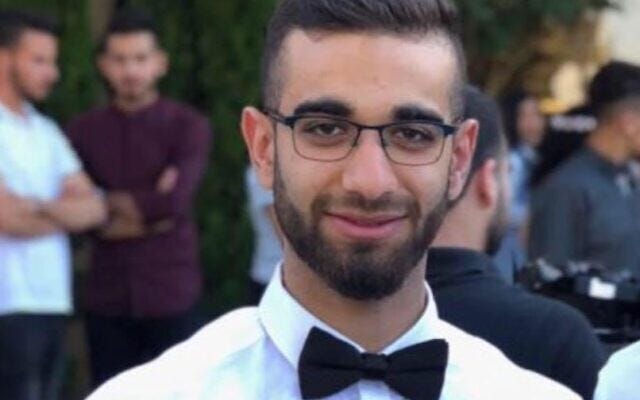

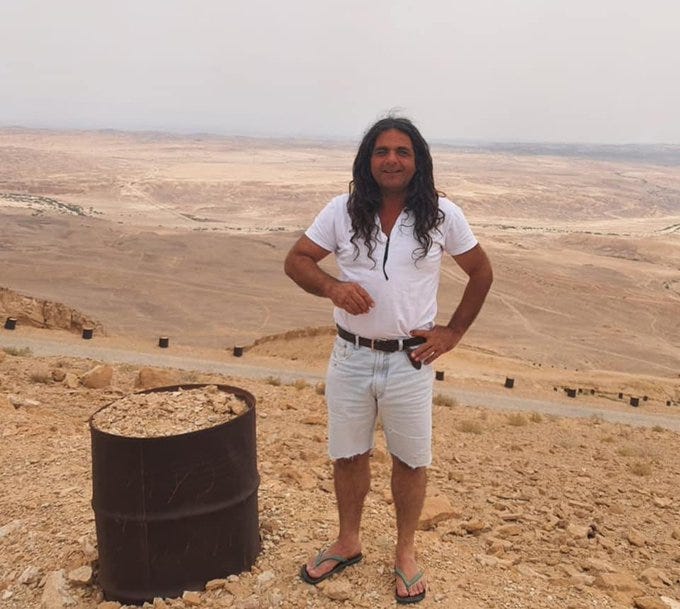
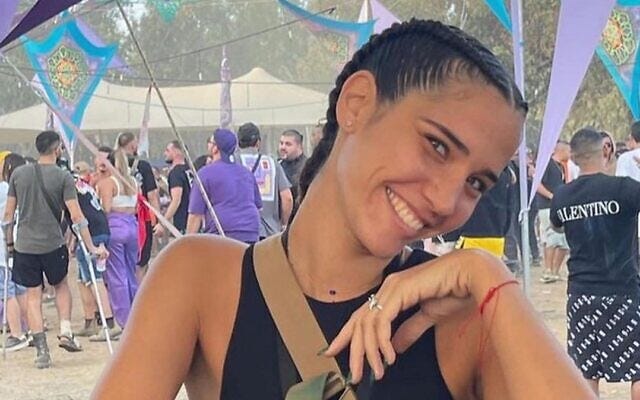
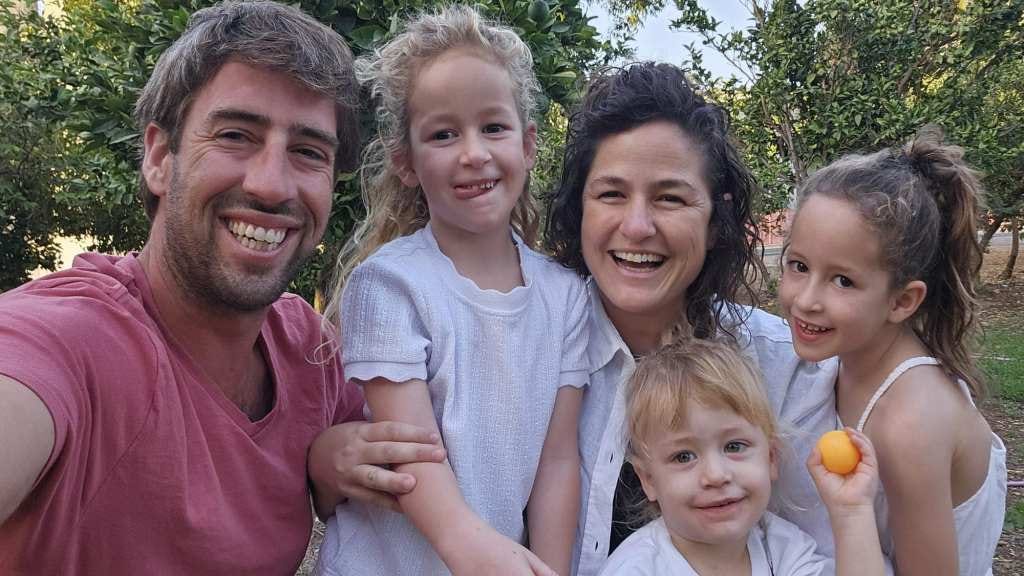
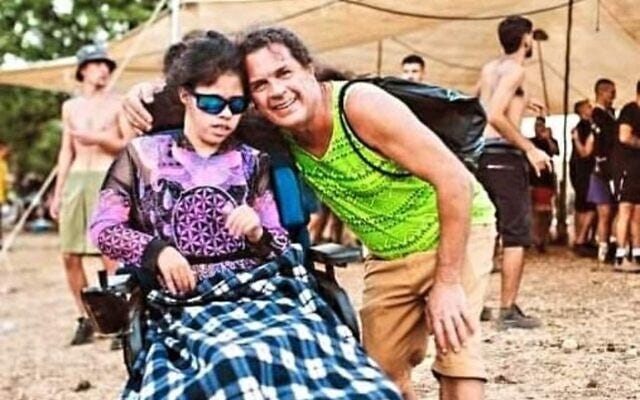

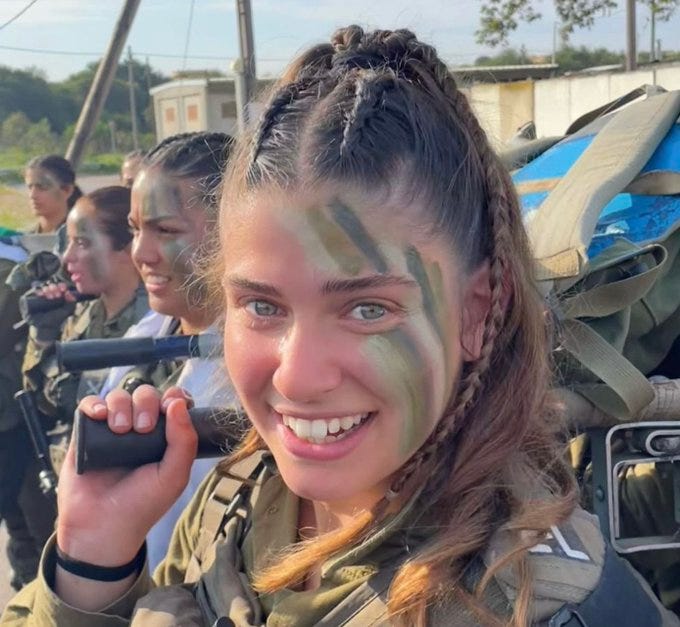


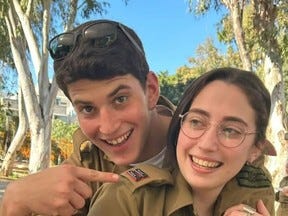
Thank you for remembering and calling us to remember.
These are moving tributes. My friends in Israel greatly appreciate Americans like you and your readers taking time to remember, and in a small way, join in mourning. Thanks for sharing this!